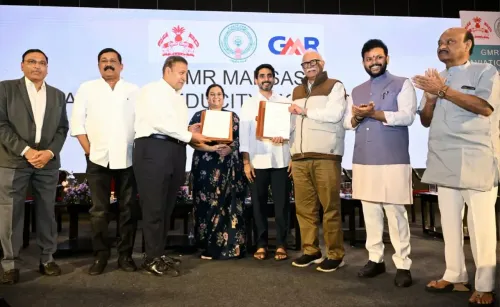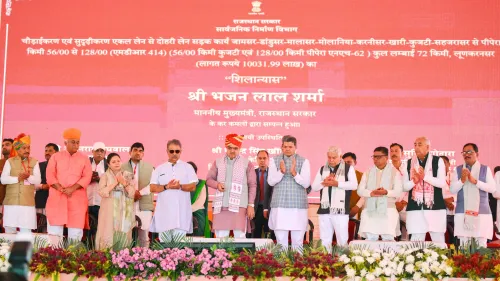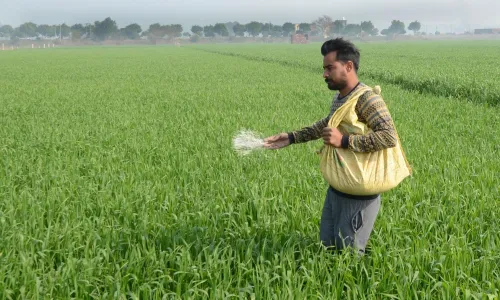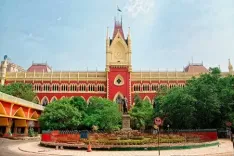South Korea to Intensify Oversight of Shipping Sector Amid U.S. Tariffs
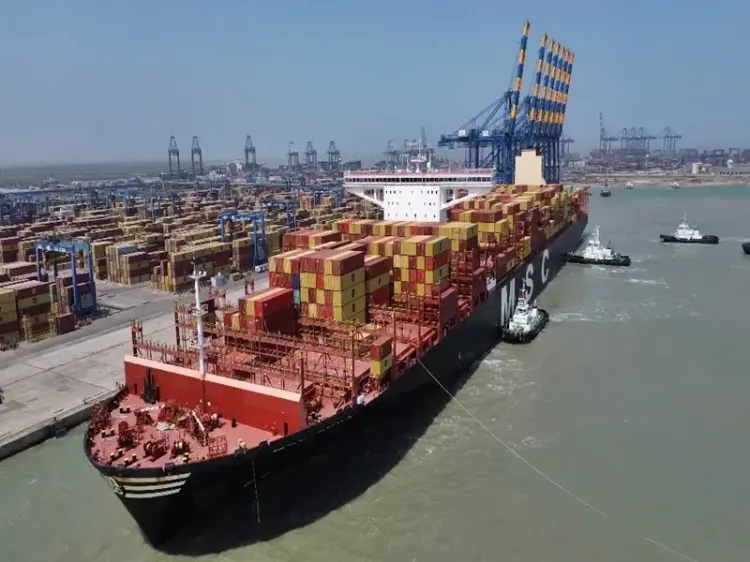
Synopsis
Key Takeaways
- Government vigilance over U.S. trade policies.
- Shipping industry under potential threat from tariffs.
- Concerns about carbon-free shipping routes.
- Plans for global carbon tax discussions by 2027.
- Increasing fatalities in fishing boat incidents.
Seoul, Feb 17 (NationPress) On Monday, the South Korean government announced that it will closely observe the changes in U.S. trade policies and their implications for the country's shipping sector in order to formulate strategies that support the stable operations of local shipping companies.
Oceans Minister Kang Do-hyung stated during a press briefing, "Currently, there are no significant issues reported regarding the shipping of export and import goods."
However, he emphasized that the government will remain vigilant and develop support measures for the domestic industry, as President Donald Trump's protectionist trade strategies, including the implementation of new tariffs, could exert "downward pressure" on shipping expenses over time, adversely impacting the profitability of shipping enterprises, according to reports from Yonhap news agency.
Kang elaborated, "In the immediate future, U.S. tariffs may elevate ocean freight rates, but they could lead to reduced demand for cargo shipping in the long run due to decreased global trade."
He also expressed concerns that the new U.S. administration's stance might hinder joint efforts between Seoul and Washington to establish a carbon-free shipping route by 2027, given Trump's commitment to fossil fuel promotion and reduced emphasis on clean energy initiatives.
In 2022, the two nations reached an agreement to collaborate on the green shipping route, which aims to link ports in South Korea's southeastern cities of Busan and Ulsan with ports in the state of Washington by 2027.
The green shipping corridor is defined as a passage where vessels achieve zero carbon emissions through eco-friendly technologies and alternative fuels.
Kang assured that the oceans ministry will continue to engage with U.S. officials to highlight the mutual advantages of this project for both countries.
Furthermore, he indicated the government's intention to advocate for South Korean businesses' interests if a global carbon tax is instituted, aiming to minimize the tax applied per ton of carbon emissions.
The International Maritime Organisation is set to discuss the implementation of a carbon tax for shipping companies starting in 2027.
Regarding the recent series of fishing vessel incidents, Kang mentioned that his ministry is actively working on various safety protocols.
Last week, a fishing boat carrying 12 individuals caught fire near Buan, approximately 200 kilometers southwest of Seoul, resulting in two fatalities, five missing persons, and five rescues.
Another fishing vessel capsized off the southern island of Jeju, leaving two dead, three missing, and the remaining five crew members rescued.
In 2024, the government reported a total of 119 fatalities from fishing boat accidents, a significant rise of 41 compared to the previous year and the highest tally since 2014, which recorded 133 deaths.


